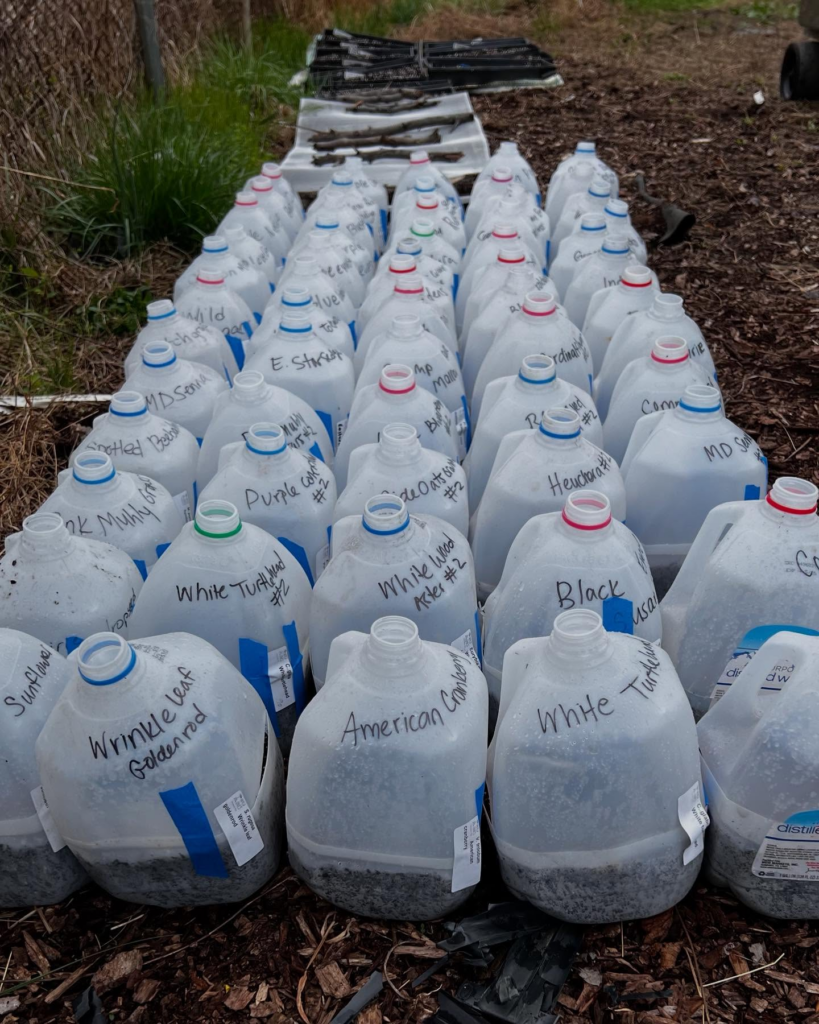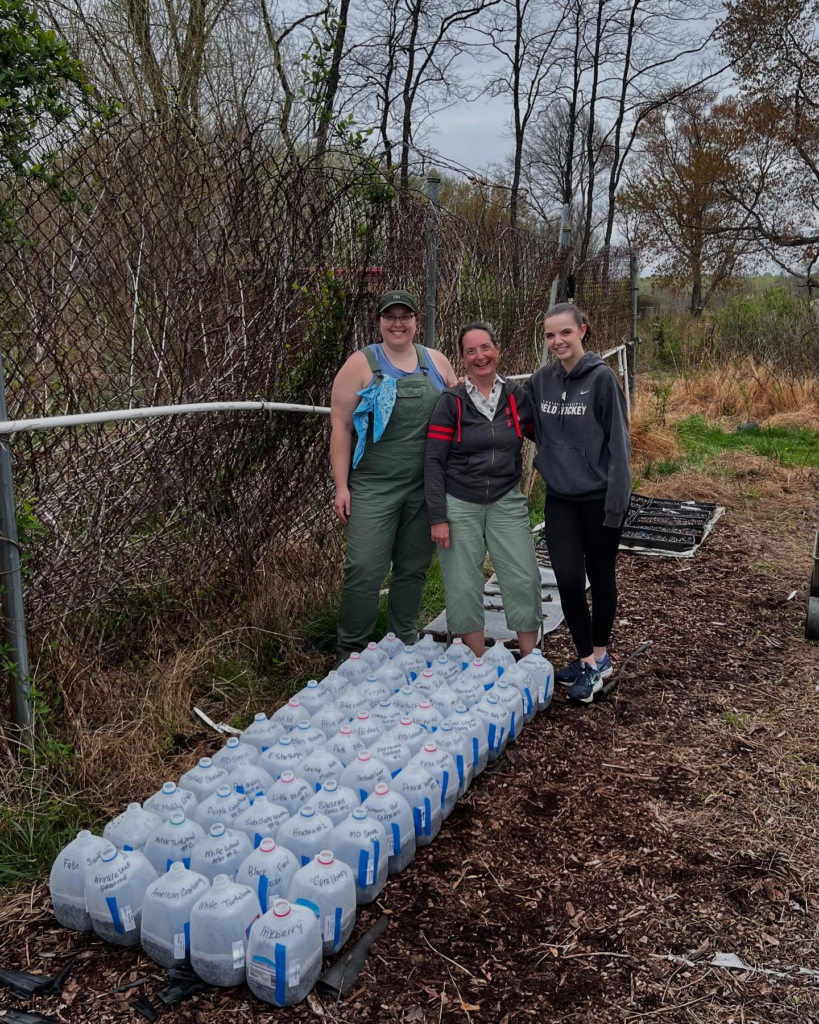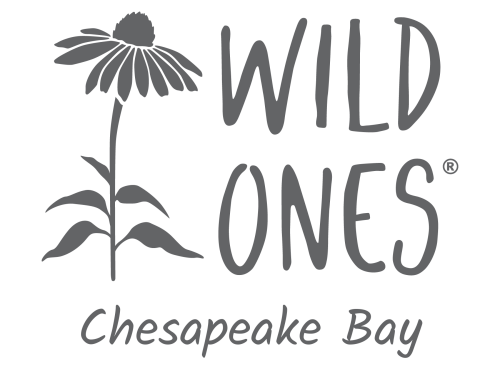And sow it begins…..
2025 native seed propagation is underway at the USGS Bee Lab at the Patuxent Research Refuge in Laurel!
It all started on the first Saturday in February when volunteers were invited to participate in the 2025 Stratification-o-rama at the Bee Lab. On February 8, under the leadership of Sam Droege, members of Wild Ones Chesapeake Bay and several other community groups spent several hours setting up cold stratification of native seeds for propagation this spring at the Bee Lab. Volunteers were invited to bring seeds, and the Bee Lab supplied us with wet sand and baggies, the “containers” used to stratify seeds in the Bee Lab refrigerator.
Fast forward eight weeks to April 5 when volunteers were welcomed back to the Bee Lab to sow their stratified seeds. Although things remain uncertain with the longevity of operations at the lab, Sam has created a flexible interim plan to keep plant propagation moving forward.

“Return of the volunteers. We are going ahead a bit late with seed planting at the Bee lab and have recreated a flexible and efficient growing season plan.” ~ Sam Droege
Unlike last year where volunteers sowed seeds in flats for germination in hoop houses, this year we sowed in a variety of containers for germination outside in one of the growing pens that were previously home to sandhill cranes and whooping cranes until 2017.
In 2024, Wild Ones Chesapeake Bay volunteers grew and distributed more than 2200 native plants of 35 species. This year, we are off to a strong start, sowing 60 milk jugs with a variety of 48 native species, including native perennials, annuals, grasses, vines, and shrubs. Our primary focus is on plants that are little known, hard to find, and/or under-appreciated in the nursery trade. Selections include plants that are native to our local Chesapeake Rolling Coastal Plain ecoregion that have recognized faunal associations. In addition, we have included plants with high pollinator value.
Our containers of choice this year are gallon milk jugs. Why milk jugs? With the seeded containers sitting outside, we selected milk jugs to provide protection from any wildlife that may wander into the growing pens, reduce contamination by wild blown weed seeds, prevent seeds washing or dislodging during heavy rains, and to maintain a more consistent moisture content and temperature. The milk jugs are also more portable should the time come that we need to remove them from the Bee Lab property.


“The Bee Lab
I got to return to my absolute favorite place today to plant the winter-sown seeds that Marlene, Bill, and I started back in February. Extra thanks to Steven for being my muscle today
This place and these people are so special & I look forward to going every week!! I can’t wait for the baby plants to start growing!!” ~ Miranda
“So many of us today were so glad to bee back in our happy place! Thank you for all you do to provide a welcoming refuge from the chaos of today’s world. Looking forward to all the happy native plants we’ll grow! You’re the “bees knees” Sam!” ~ Marlene

In addition to Wild Ones Chesapeake Bay, some of the other community groups propagating plants at the Bee Lab include: RePollinate Anne Arundel, Bowie Green Team, Greenbelt Seedbox Team, PG Department of Parks and Rec, UP Sustainability, and more.

Read more about the Bee Lab and our 2024 experiences on our blog.
Check out the 2023 Greenbelt Online article about the Bee Lab.
And finally, “Meet the Fluffy, Funky and Fabulous Native Bees That Call the U.S. Home“
